An insight into the Metropolitan Police
By Unaisa Baker
Across numerous news boards, stop and search is being addressed. The rising rate of stabbings in the UK has drawn attention to issues with how the Metropolitan police deal with this issue.
“Police in England and Wales are being given greater stop and search powers to tackle rising knife crime.” – BBC News
“Met police 'disproportionately' use stop and search powers on black people.” – The Guardian
“Black people 'nine times as likely' as whites to be stopped and searched by police in England and Wales.” – The Independent
GOWISELY. The first thing any police cadet must know to earn their uniform. The first introduction to stop and search a future police officer has. An abbreviation that became second nature to me during my three years as a black, female police cadet.
It is undoubtedly true that police officers are more likely to search a black person than a white. As stated in the Independent, “Black people in England and Wales are almost nine times more likely than whites to be stopped and searched for drugs, according to a report.” Why this is, is a controversial topic.
A BuzzFeed article highlights the obvious issue with the Metropolitan police through photographs. In the article titled, “No Trivial Headline, No Puns - Why Stop And Search Is No Laughing Matter.” Students of ethnic minority’s magnify their experiences being stopped and searched in few words, as shown in the pictures below.
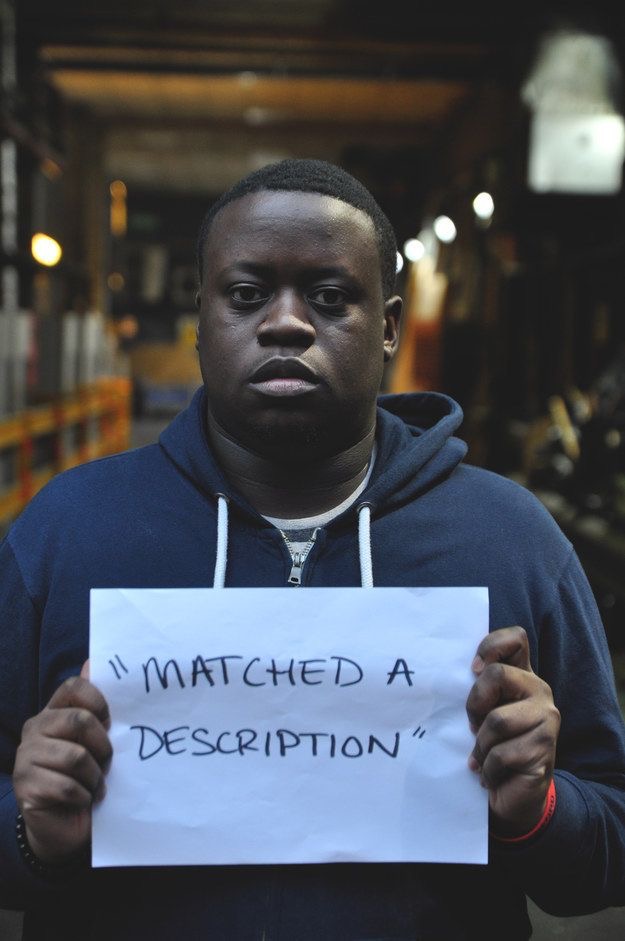 Photo by Darren Johnson / iDJ
Photo by Darren Johnson / iDJ
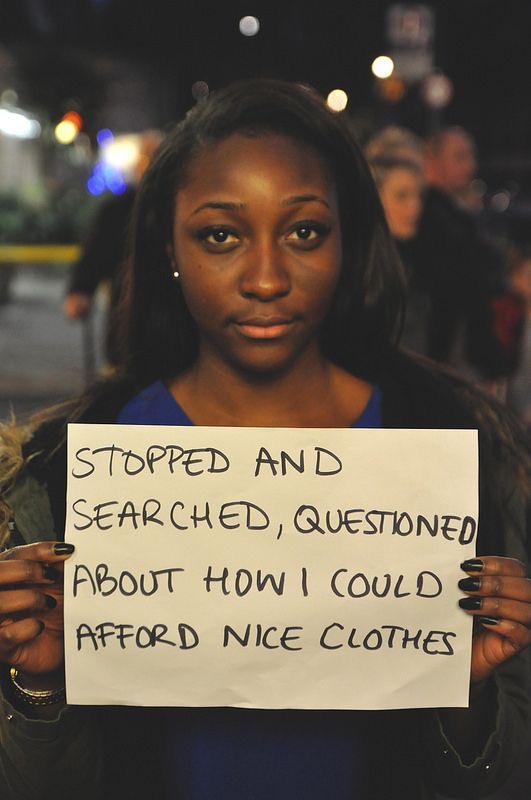 Photo by Darren Johnson / iDJ
Photo by Darren Johnson / iDJ
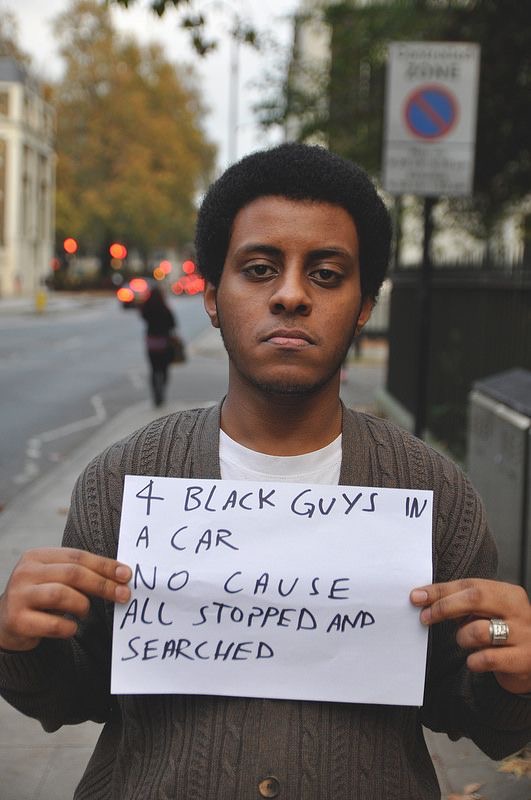 Photo by Darren Johnson / iDJ
Photo by Darren Johnson / iDJ
As a young black person who served in the Metropolitan Police, it could be argued that I have a biased approach to this issue. But the insight I have is perhaps a way out of this problem.
What’s wrong with stop and search may be recognised in the way it’s being taught to youngsters. Future police officers need to be taught GOWISELY in a more effective way – not the robotic structure I was taught. So, what is it exactly?
A police officer is required to go through each letter of the abbreviation “GOWISELY”. No search can continue without following this routine. The problem does not lie in the routine itself, but with how it is performed.
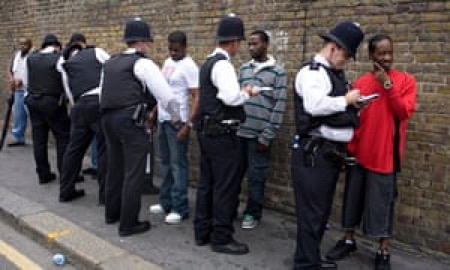
G – Grounds of search
O – Object being searched for
W – Warrant card
I – Identification
S – Station
E – Entitlement to the copy of the search
L – Legislation
Y – You are now detained
This routine may be carried out in any order, just as long as everything is mentioned. If the routine is this simple and flexible, where are police officers going wrong?
The diversity within the Metropolitan Police may be increasing, but it is still horrific. And until this problem is paid more attention to, nothing will move forward. The solution to the problem of stop and search is simple, but it needs the diversity issue to be solved. Let’s kill two birds with one stone – this starts with the recruitment process.
From graduating from police cadets, I was encouraged to apply as a special constable. The London Borough of Tower Hamlets is the most diverse group pf cadets. At any competition this was obvious, all other boroughs appeared predominantly white. Not many cadets who graduated from this borough went on to become police officers. I soon realised why.
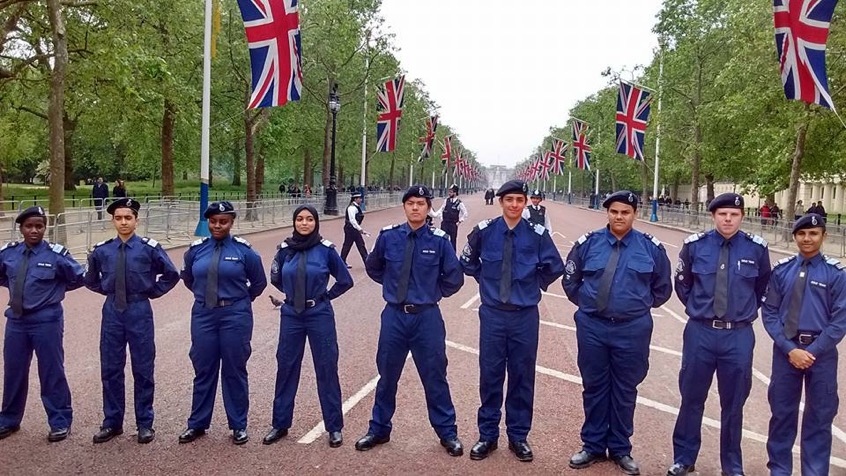
Tower Hamlets Cadets attend Trooping the Colour 2016
The diversity within the Tower Hamlets Cadets is represented in this one photograph.
One of my police cadet colleagues had applied to be a special constable the week before me. She told me the interview went well and that she was interviewed by a white male. She didn’t pass. “Let’s hope you get a Muslim interviewer.” I didn’t understand why this would make a difference until I was being interviewed, by a Muslim female police officer. I passed to the next stage and was told it was lucky I got her. That speaks for itself, don’t you think? I chose to pursue another career path, but I couldn’t help wondering what it would have been like as a Muslim, black, female police officer. Would I have been treated any different from my white college?
The lack of diversity within the Metropolitan Police is only spoken about. Little to no effort is being made in ensuring more ethnic minorities are being recruited. Something must be done.
Here are the statistics of the diversity within the Met taken from Gov.UK:
Police officer ethnicity in Metropolitan Police Service:
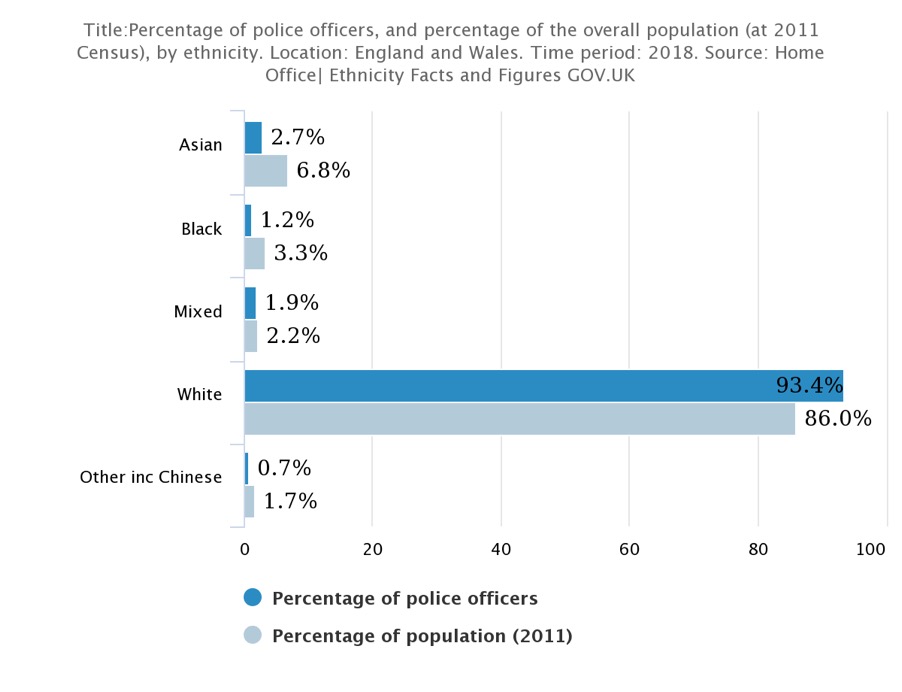
A young black man was asked,
“If you were to be stopped and searched, would you be more comfortable being given the option of being searched by someone like yourself?”
“I would prefer to be given the option of being searched by someone like me. Because I know he’d be able to relate more to my situation.”
“How does it make you feel that there aren’t many black police officers?”
“It makes me uncomfortable because I feel like white police officers may have stereotypical views of the type of person I am. And a black police officer searching me would be aware of these views and would be more understanding. It would benefit the police force if there was more diversity because that way members of the public wouldn’t continue to have stereotypical views of them too.”
My suggestion is simple: give the members of the public being searched the choice of being searched by someone like them. Step one in ensuring this is possible is ensuring there are enough ethnic minority police officers available. Metropolitan police, you know what to do.
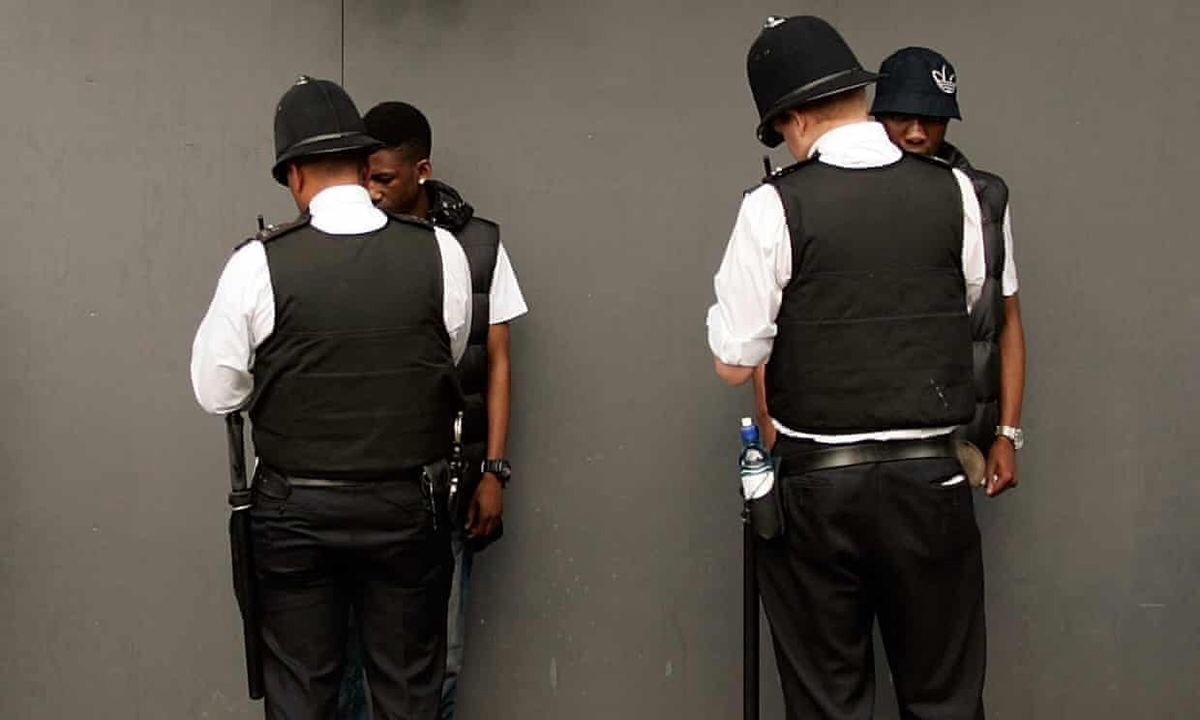
Post a comment